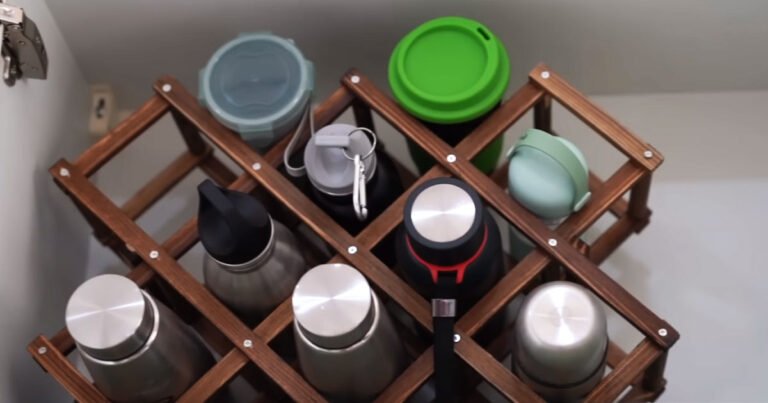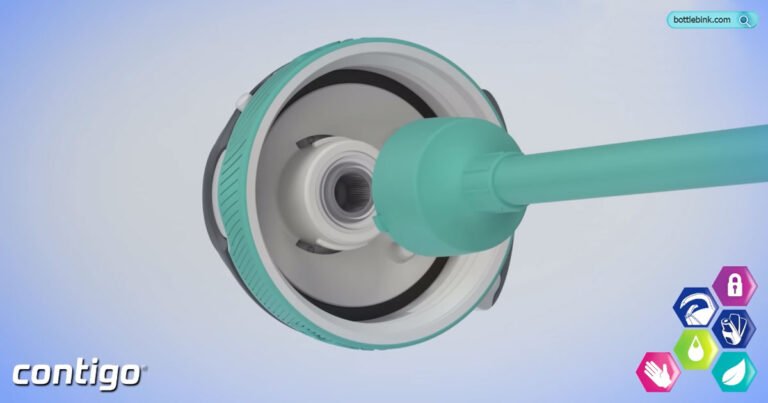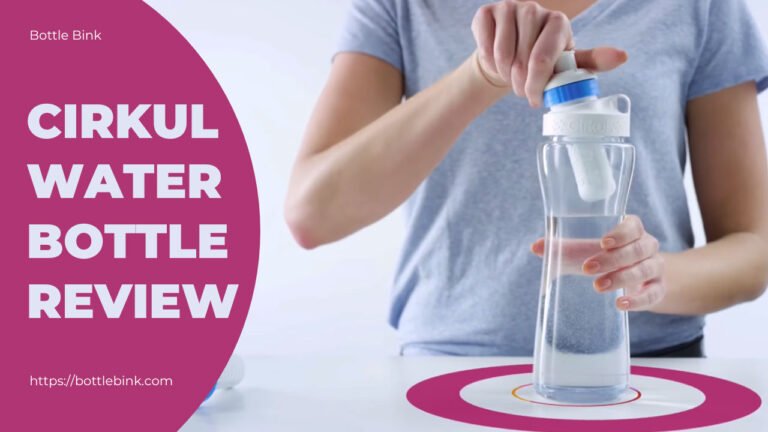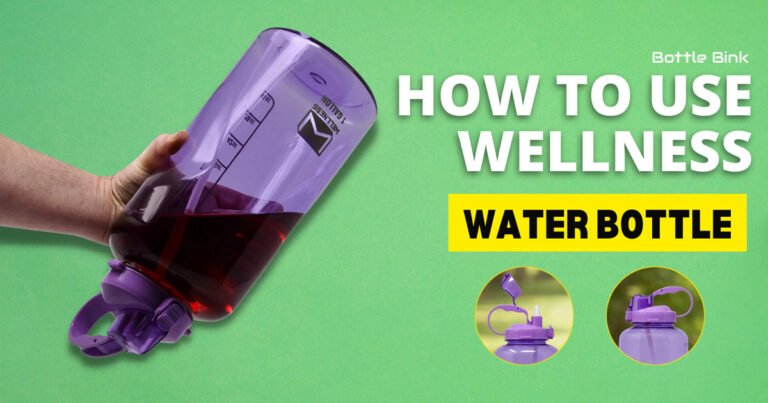How Many Bottles of Water Should I Drink a Day : Hydration Hacks
You should drink about 8-10 glasses of water per day. Staying adequately hydrated is essential for maintaining good health and supporting your body’s functions.
Water helps in digestion, circulation, temperature regulation, and the removal of waste products. Proper hydration also aids in maintaining healthy skin, promoting weight loss, and preventing fatigue. In addition to these benefits, drinking enough water can support kidney function, improve brain function, and prevent headaches.
While individual water needs may vary depending on factors such as age, activity level, and climate, a general guideline is to aim for at least 8 glasses or approximately 64 ounces of water each day.
Importance Of Hydration
Staying hydrated is essential for overall well-being.
Discover the key reasons to maintain proper hydration levels!
Benefits Of Staying Hydrated
- Boosts energy and performance
- Enhances cognitive function
- Regulates body temperature
- Aids digestion and nutrient absorption
Effects Of Dehydration
- Causes fatigue and dizziness
- Impairs concentration and focus
- Increases the risk of headaches
- Leads to dry skin and muscle cramps
Remember to drink enough water throughout the day to reap these benefits!
Factors Affecting Water Intake
Physical Activity Levels
Staying active increases water needs. Exercise raises sweating, requiring more hydration.
Climate And Weather Conditions
Hot weather increases dehydration risks, needing more water intake to stay hydrated.
Age And Gender
Age and gender affect hydration needs. Children and elderly may require more water intake.
Recommended Daily Water Intake
Knowing the recommended daily water intake is crucial for maintaining optimal health and well-being. Proper hydration is essential for every bodily function, from regulating body temperature to aiding digestion and maintaining healthy skin. In this article, we will explore the general guidelines for daily water intake as well as specific recommendations for different age groups. Let’s dive in!
General Guidelines
While the exact amount of water you should consume each day may vary depending on factors such as activity level, climate, and overall health, there are some general guidelines that can help you stay hydrated:
- Stay hydrated throughout the day by drinking water at regular intervals.
- Drink water before, during, and after physical activity to replenish the fluids lost through sweating.
- Listen to your body’s thirst cues. Thirst is an indicator that you need to drink water to maintain proper hydration.
- Pay attention to the color of your urine. Clear or pale yellow urine is a sign of adequate hydration.
- Avoid relying solely on thirst as a signal to drink water. Sometimes, our bodies may not signal thirst until we are already dehydrated.
- If you have certain medical conditions or take medications that affect fluid balance, consult with your healthcare provider for personalized recommendations.
Specific Recommendations For Different Age Groups
Water intake requirements can vary across different age groups. Here are some specific recommendations:
| Age Group | Recommended Daily Water Intake |
|---|---|
| Infants (0-6 months) | Approximately 0.7-0.8 liters per day. Most of the fluid intake comes from breast milk or formula. |
| Children (7-12 months) | About 0.8-1 liter per day. This includes fluids from breast milk, formula, and water. |
| Children (1-3 years) | 1-1.3 liters per day. This includes fluids from water, milk, and other healthy beverages. |
| Children (4-8 years) | Around 1.3-1.7 liters per day. Encourage water consumption and limit sugary drinks. |
| Children and Adolescents (9-13 years) | About 1.7-2.4 liters per day. Offer water as the primary source of hydration. |
| Adolescents (14-18 years) | Girls: 2-2.3 liters per day. Boys: 2.3-3 liters per day. Adjusting for physical activity levels and individual needs is important. |
| Adults (19 years and older) | Women: 2.2 liters (about 9 cups) per day. Men: 3 liters (about 13 cups) per day. Individual variations exist, so adjust accordingly. |
Remember, these are general recommendations. Factors such as pregnancy, breastfeeding, and medical conditions may require adjustments to water intake. Stay mindful of your body’s hydration needs and make sure to drink enough water to keep yourself feeling and functioning at your best.

Credit: www.everydayhealth.com
Calculating Water Intake
Ensure you’re getting enough water by calculating your intake using your weight and activity level. A good rule of thumb is to drink around 8-10 glasses of water per day. This can be equivalent to 4-5 water bottles, each containing 16 ounces.
Calculating Water Intake Staying hydrated is essential for overall health and well-being, but figuring out how much water to drink can be confusing. Understanding the basic formula for daily water intake and considering additional factors can help you determine the right amount of water for your individual needs.
Basic Formula For Daily Water Intake
Determining how much water to drink daily can be easily done using a simple formula. Generally, it’s recommended to consume a minimum of 8 8-ounce glasses of water per day. To calculate a more specific amount, divide your body weight in pounds by 2, and the result is the number of ounces of water you should drink daily. For example, a person weighing 150 pounds should aim to drink at least 75 ounces of water each day.
Additional Factors To Consider
While the basic formula provides a good starting point, there are various additional factors that can affect your water intake needs. Physical activity, climate, and overall health can influence how much water your body requires.
If you’re more physically active, live in a hot climate, or are ill, you’ll likely need to increase your water intake. Pregnancy and breastfeeding also increase the need for hydration.
Additionally, certain medications and medical conditions may necessitate adjusting your daily water intake. Staying mindful of these factors and adjusting your water consumption as needed will help ensure you stay properly hydrated.
Signs Of Dehydration
Dehydration can be identified through various signs, such as increased thirst, darker urine, dry mouth, fatigue, and dizziness. It is recommended to drink around 8-10 glasses (64-80 ounces) of water daily to stay adequately hydrated.
Common Symptoms
Dehydration can manifest in various ways, and it’s essential to recognize the common symptoms to ensure timely intervention. Common symptoms that may indicate dehydration include thirst, dry mouth, dark yellow urine, headaches, fatigue, and dizziness.
Staying hydrated is crucial for maintaining optimal health, but it’s easy to underestimate the importance of consuming an adequate amount of water each day. Dehydration can have serious consequences, and understanding the signs is paramount in preventing potential complications.
Serious Consequences Of Severe Dehydration
While mild dehydration can be remedied by increasing fluid intake, severe dehydration can lead to serious consequences that require immediate medical attention. Such consequences may include organ failure, seizures, hypovolemic shock, and, in extreme cases, death.
Tips For Staying Hydrated
Discover how to stay well-hydrated by tracking your daily water intake. Aim for approximately eight 8-ounce glasses per day, adjusting as needed based on your activity level and overall health. Monitoring your water consumption can help you maintain optimal hydration levels throughout the day.
Staying hydrated is essential for overall health and well-being. It is recommended to drink an adequate amount of water each day to maintain hydration. Here are some helpful tips to ensure you stay hydrated throughout the day.
Carrying A Water Bottle
Having a water bottle with you is a simple and practical way to stay hydrated. By carrying a water bottle wherever you go, you can easily sip on water throughout the day. It serves as a constant reminder to drink and is a convenient way to ensure you always have water readily available.
Setting Reminders
With busy schedules and distractions, it can be easy to forget to drink enough water. Setting reminders can be helpful in ensuring you stay hydrated. Use your smartphone or any other reminder system to alert you throughout the day to take a water break. Aim for regular intervals to drink water, such as every hour or two.
Eating Hydrating Foods
Not only can you hydrate by drinking water, but you can also eat hydrating foods. Including foods with high water content in your diet can contribute to your overall hydration. Some examples of hydrating foods include watermelon, cucumbers, oranges, strawberries, and lettuce. These foods not only provide vital nutrients but also contribute to your daily water intake.
Hydration Myths
Discover the truth behind hydration myths. The ideal daily water intake varies, but generally, aim for eight 8-ounce glasses. Listen to your body’s signals and adjust accordingly.
Hydration Myths Drinking enough water is crucial for overall health, but there are myths surrounding how much one should consume daily.
Drinking Eight Glasses Of Water Per Day
The “eight glasses a day” rule is not universally applicable and may not suit everyone’s hydration needs. Myth: Eight glasses is the minimum water intake required daily. Fact: Water intake should be based on individual factors like activity level and climate. Tip: Listen to your body to determine when you need more water.
Thirst As A Reliable Indicator Of Hydration
Relying solely on thirst may not always be the most accurate measure of hydration status. Myth: Thirst is the best indicator of when to drink water. Fact: By the time you feel thirsty, you may already be mildly dehydrated. Tip: Aim to drink water consistently throughout the day, even if you’re not feeling thirsty. Remember, staying hydrated is essential for overall well-being, so pay attention to your body’s signals and adjust your water intake accordingly.

Credit: www.fredmeyer.com
Special Considerations
Pregnancy And Breastfeeding
During pregnancy and breastfeeding, hydration is vital for both you and your baby. Drink plenty of water to support proper hydration levels.
Athletic Performance
Athletes have increased fluid needs due to sweating. Optimal hydration is crucial for enhanced performance and recovery.
Medical Conditions
Individuals with medical conditions like kidney disease or diabetes may require modified intake levels. Consult your healthcare provider for guidance.
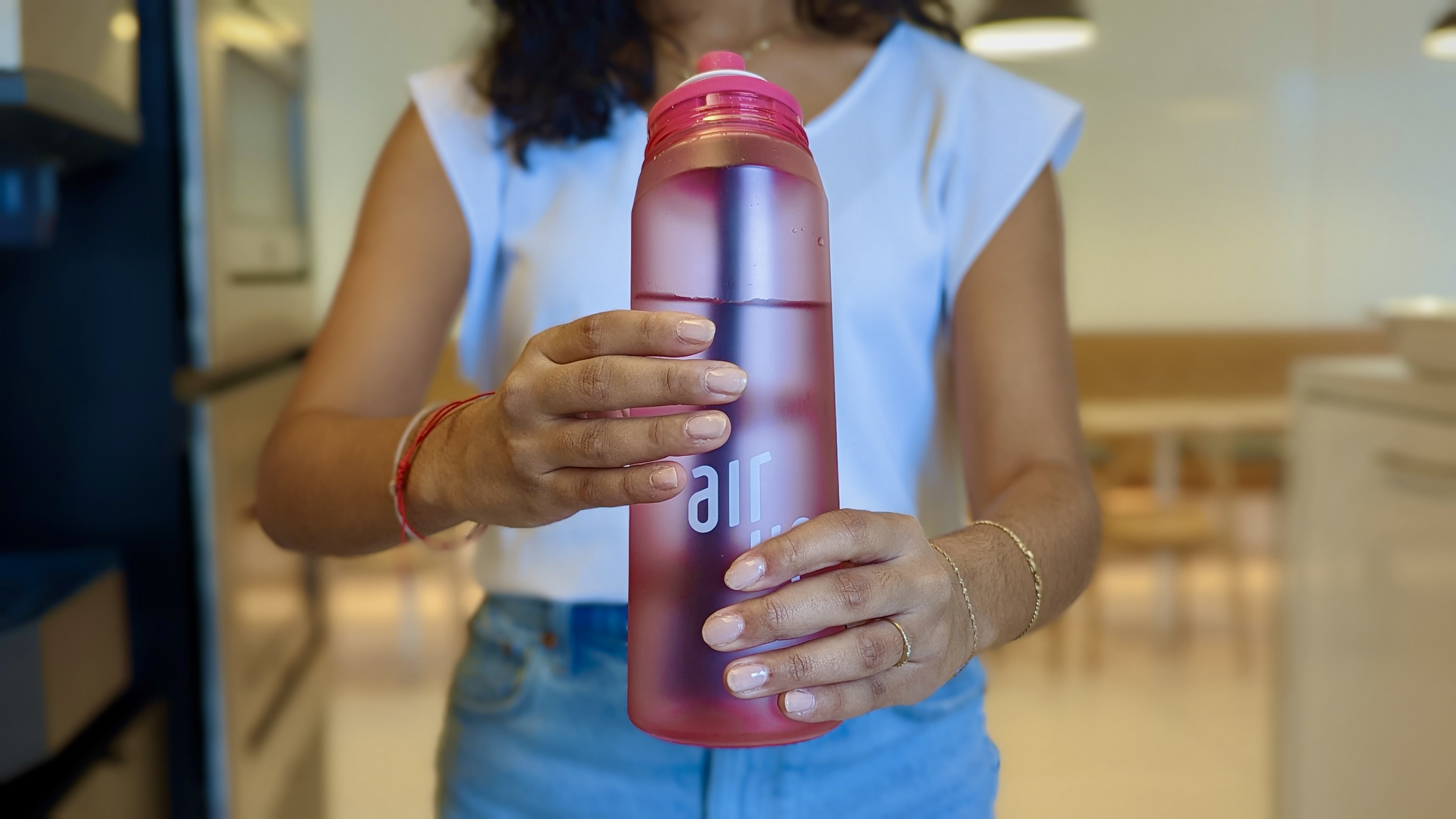
Credit: www.zdnet.com
FAQs On How Many Bottles Of Water Should I Drink A Day
How Much Water Should I Drink Daily?
You should aim to drink at least eight 8-ounce glasses of water per day, which is commonly known as the “8×8” rule. However, individual hydration needs may vary based on factors such as age, gender, activity level, and climate.
Can I Stay Hydrated By Drinking Other Beverages?
While water should be your primary source of hydration, other beverages such as herbal teas, 100% fruit juices, and milk can contribute to your overall fluid intake. Just be mindful of added sugars and caffeine content in your choices.
What Are Signs Of Dehydration?
Symptoms of dehydration include increased thirst, dry mouth, infrequent urination, dark-colored urine, fatigue, dizziness, and headaches. It’s important to drink water regularly throughout the day to prevent these symptoms.
Should I Drink More Water When Exercising?
Yes, you should increase your water intake when exercising to compensate for fluid loss through sweat. Aim to drink 8-16 ounces of water before exercising, and continue to hydrate with sips of water throughout your workout.
Conclusion
To sum up, staying hydrated is essential for overall health and well-being. While the commonly recommended eight glasses of water a day is a good guideline, the actual amount you need can vary depending on various factors such as age, activity level, and climate.
Remember to listen to your body’s signals and drink enough water to stay properly hydrated. Whether it’s through water, fruits, or other beverages, finding the right balance is key. Cheers to a hydrated and healthy lifestyle!

